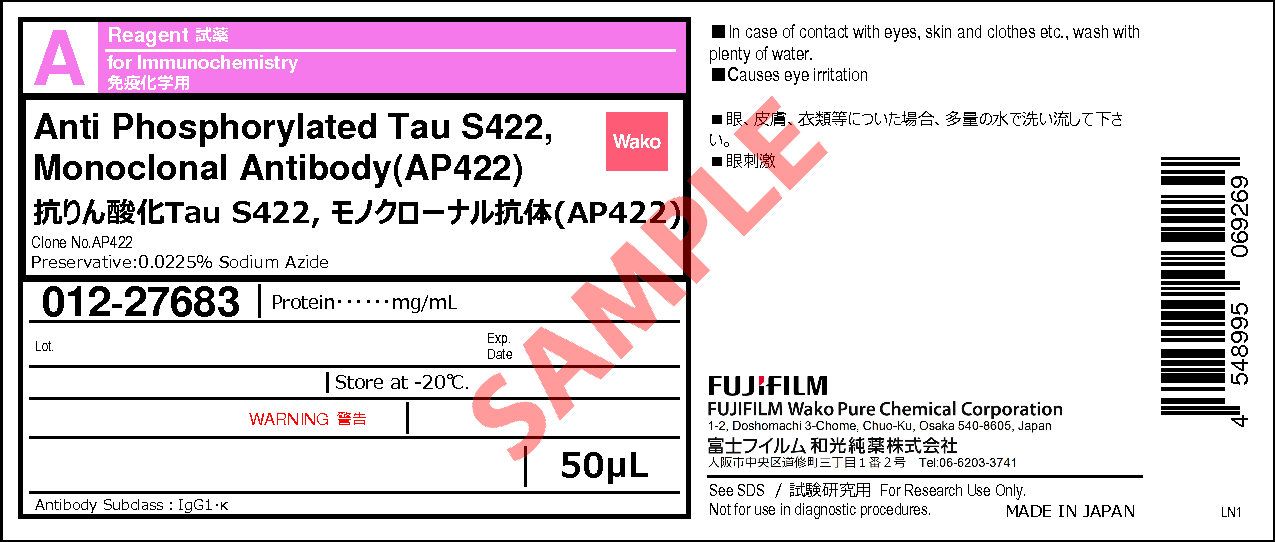Anti Phosphorylated Tau S422, Monoclonal Antibody(AP422)
- for Immunochemistry
- Manufacturer :
- FUJIFILM Wako Pure Chemical Corporation
- Storage Condition :
- Keep at -20 degrees C.
- Structural Formula
- Label
- Packing
- SDS
|
Comparison
|
Product Number
|
Package Size
|
Price
|
Availability
|
Certificate of Analysis
|
Purchase |
|---|---|---|---|---|---|---|
|
|
|
50uL
|
|
In stock in Japan |
※Check availability in the US with the distributor.
Document
Overview / Applications
| Outline | This product is for research use only. Do not administer it to human. Tau is one of the microtubule-associated proteins, which is mainly expressed in neurons of the central nervous system, and controls the stabilization of microtubules. In the brains of Alzheimer's disease patients, it is reported that neurofibrillary tangle accumulated by phosphorylated Tau is formed, and the extent of its appearance correlates with the severity of dementia. Therefore, Tau is being studied for investigating the cause of Alzheimer's disease and developing therapeutic drugs. This product is mouse monoclonal antibody which recognizes phosphorylated Tau at S422. [Antigen] human Tau 417-427 a.a. phosphorylated S422 (CGGIDMVDpSPQLAT) [Antibody subclass] mouse IgG1 kappa [Species cross reactivity] human, mouse [Experimental adaptation] Western blot (1:1,000), immunohistochemical staining (1:1,000) [Reference] 1)Hasegawa, M., et al.: FEBS Lett., 384, 1, 25(1996). 2)Goedert, M., et al.: FEBS Lett., 409, 1, 57(1997). 3)Buee-Scherrer, V., et al.: FEBS Lett., 515, 1, 151(2002). 4)Delobel, P., et al., J. Neurochem., 83, 2, 412(2002). 5)Bellucci, A., et al.: Am. J. Pathol., 165, 5, 1643(2004). 6)Sylvie, L. C., et al.: PNAS, 103, 25, 9673(2006). 7)Schindowski, K., et al.: Am. J. Pathol., 169, 2, 599(2006). 8)Audouard, E., et al.: Am. J. Pathol., 186, 10, 2709(2016). |
|---|
Property
| Appearance | Liquid |
|---|
Manufacturer Information
Alias
- Anti Tau pS422, Mouse Monoclonal Antibody (Clone No. AP422)
For research use or further manufacturing use only. Not for use in diagnostic procedures.
Product content may differ from the actual image due to minor specification changes etc.
If the revision of product standards and packaging standards has been made, there is a case where the actual product specifications and images are different.




